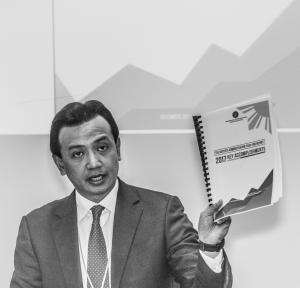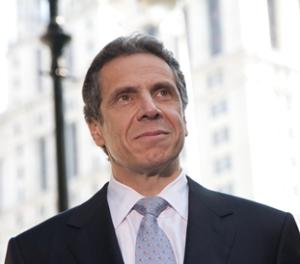Two will vote on marijuana legalization, two on medical marijuana.
StoptheDrugWar.org condemns the Duterte administration's illegal move to imprison a second prominent drug war critic.
A group of federal lawmakers asks the VA to study medical marijuana as an alternative to opioids, Michigan could loosen up a bit, Ohio sees delays, and more.
California ends cash bail for criminal defendants -- but cash bail opponents don't think it was worth it -- the Northern Marianas Islands legislature passes a marijuana legalization bill, Oregon activists look forward to cannabis cafes, and more.
The police chief in Oklahoma City wants pot busts downgraded, the US Sentencing Commission sets policy priorities for the next 18 months, marchers demand New York Gov. Andrew Cuomo take action on the state's overdose crisis, and more.
Colombia's new president moves resolutely backward on drug policy, New York City's era of mass marijuana possession arrests is over, the California legislature has been busy, and more.
A Malaysian court has sentenced a man to death for providing cannabis oil to patients, a group of lawmakers asks the VA to study medical marijuana as an alternative to opioids, and more.
Nine states and the District of Columbia have legalized marijuana since 2012, but all of those states have been in the West or the Northeast. This year, with marijuana legalization on the ballot in Michigan as well as North Dakota, legal weed could make a heartland breakthrough.
Similarly, medical marijuana's rise to acceptance continues, and this year, Missouri and Utah look set to join the ranks.
Two of these states -- Missouri and North Dakota -- also have incumbent Democratic senators up for reelection in tough campaigns this fall. Whether voters motivated by marijuana could help Claire McCaskill and Heidi Heitkamp retain their seats remains to be seen, but pot at the polls will generate interest among more liberal voters.
We could see New Jersey move quickly and legalize weed via the legislature sometime in the next two months, but barring that, it looks like we'll see at least one, and quite possibly two, new marijuana legalization states come election day and, most likely, two more medical marijuana states.
Here we go:
Michigan
Michigan is poised to become marijuana legalization's Midwest breakout state. The Coalition to Regulate Marijuana Like Alcohol has qualified a marijuana legalization initiative, Proposal 1, for the November ballot.
The measure would legalize the possession up to 2.5 ounces of pot for personal use and up to 10 ounces at home, as well as allowing for the personal cultivation of up to 12 plants and the fruits of that harvest. It also creates a system of taxed and regulated marijuana commerce, with a 10 percent excise tax at the retail level in addition to the 6 percent sales tax. The measure would give cities and counties the option of allowing pot businesses or not.
The initiative looks well-positioned to win in November. A February poll had support for legalization in Michigan at 57 percent, while a March poll came in at 61 percent. The most recent poll, from May, had support holding steady at 61 percent. Those are the kinds of polling numbers initiative and referendum experts like to see at the beginning of the campaign because they suggest that even with the inevitable erosion of support in the face of opposition attacks, the measure still has a big enough cushion to pull off a victory.
Missouri
Missouri voters will be able to choose from not one, not two, but three separate medical marijuana measures when they go to the polls in November. Two are constitutional amendments; one is a statutory initiative that could more easily be modified by the legislature.
Amendment 2, sponsored by New Approach Missouri, would allow doctors to recommend medical cannabis for any condition they see fit. Registered patients and caregivers would be allowed to grow up to six marijuana plants and purchase up to four ounces from dispensaries per month. Medical cannabis sales at dispensaries would be taxed at 4 percent.
Amendment 3, sponsored by Find the Cures, would let doctors recommend medical marijuana to patients who have any of a specific list of qualifying conditions (while regulators would be able to add more conditions in the future). The retail sales tax on medical marijuana would be set at the much higher rate of 15 percent. Funds would be used to support research with the aim of developing cures and treatments for cancer and other diseases.
Proposition C, backed by Missourians for Patient Care, also outlines a list of specific conditions that would qualify patients to legally use medical cannabis. Sales would be taxed at 2 percent.
An August poll conducted by TJP strategies had support for amending the state constitution to allow medical marijuana at 54 percent.
That there are three separate measures on the ballot could lead to some confusion. If multiple ballot measures on the same topic pass, the one with the most votes generally prevails. But because in this case two of the measures are constitutional amendments and one is a statutory measure, if the statutory measure gets more votes than either of the amendments, but at least one of them passes, it could be up to the state's court system to figure out which goes into effect.
While there is nothing stopping voters from voting "yes" on all three measures, there are also concerns that the multiplicity of options could result in splitting the pro-medical marijuana vote, with some voting "yes" on only one measure and "no" on the others. In this election, when it comes to medical marijuana, Missouri may have too much of a good thing.
North Dakota
The winds of change are blowing across the northern prairies. Just two years ago, North Dakota voters approved a medical marijuana initiative, and this year, a grassroots group, Legalize ND, managed to get enough signatures to get Measure 3, the Marijuana Legalization and Automatic Expungement initiative, on the November ballot.
This is a radical initiative. It would legalize all forms of marijuana for adults by removing marijuana, THC, and hashish from the state's controlled substance schedules, and it sets no limits on the amount of marijuana people could possess or how many plants they grow. It also provides for the automatic expungement of criminal convictions for anyone convicted of a marijuana-related crime that would be legal under the measure.
And it does not create a framework for regulated marijuana sales, nor does it set any taxes. Creating a system of taxed and regulated marijuana commerce would be up to the state legislature.
North Dakota is a deep red state -- Donald Trump got more than twice as many votes as Hillary Clinton in 2016 -- but the only poll done so far has the initiative leading. The June poll, commissioned by Legalize ND and conducted by the Florida-based Kitchen Group, had the initiative winning 46 percent to 39 percent, with 15 percent undecided.
That's good but not great news for Legalize ND. Yes, the initiative is leading, but the conventional wisdom among initiative and referendum watchers is that campaigns should be starting off with at least 60 percent support -- the assumption being that inevitable organized opposition is going to eat away at support levels in the final weeks of the campaign.
Utah
Sponsored by the Utah Patients Coalition, the medical marijuana statutory initiative, Proposition 2, has qualified for the November ballot. The bottom-up effort comes after the state legislature has refused to advance meaningful medical marijuana legislation.
Under the measure, people who suffer from one of a list of designated qualifying medical conditions could receive a medical marijuana card with a physician's recommendation. That would entitle them to possess up to two ounces of marijuana or any amount of a marijuana product with up to 10 grams of THC. Patients could not grow their own unless they live more than 100 miles from a dispensary. And the patients cannot smoke marijuana.
The measure has received opposition from the Church of Latter Day Saints (Mormons), but even church members don't appear to be heading the leadership on this one. A Utah Policy poll released Tuesday has support for the measure at 64 percent. Among Mormons, the church's active opposition has swayed only "very active" church members, who now narrowly oppose the measure. But "somewhat active" and "former" Mormons both overwhelmingly support it. It looks like medical marijuana is coming to the Land of Deseret.
back to top

Senator Trillanes at our March 2018 event (photo courtesy Joey Tranchina)
FOR IMMEDIATE RELEASE:
September 4, 2018StoptheDrugWar.org condemns the Duterte administration's blatantly political attack on Senator Antonio Trillanes, a fierce and brave critic of the President's human rights violations.
Senator Trillanes joined our March 2018 event at the Commission on Narcotic Drugs annual meeting in Vienna, where he presented administration data suggesting that extrajudicial killings in President Duterte's drug war may exceed 20,000. Perversely, the Senator observed, the administration listed these killings among its "2017 Accomplishments."
We note that President Duterte promised a year ago to "destroy" Senator Trillanes.
Senator Leila de Lima was incarcerated a year and a half ago on unsupported drug charges, half a year after President Duterte promised to "destroy" her. The case against de Lima was brought shortly after she had a confessed former member of Duterte's "Davao Death Squad" testify in the Justice Committee, one of two former DDS members to go public.
"Senator Trillanes told us in Vienna he expected political prosecutions to increase in pace during the second half of this year. But he also promised that while he remained free, he would continue to speak out," said StoptheDrugWar.org Executive Director David Borden.
"Undoubtedly the imprisoning of Senator Trillanes, if that happens, will further mobilize the already energized Philippine opposition to Duterte," Borden continued. "But it will also focus even greater world attention onto Duterte's crimes and depredations. I am saddened by this development, but I can't imagine a better gift to our international organizing efforts."
StoptheDrugWar.org is a US-based NGO with a focus on international drug policy, and which has focused on the Philippines human rights situation since early 2017. Our educational nonprofit DRCNet Foundation has been in Special Consultative Status with the UN Economic and Social Council since 2016.
Footage of Senator Trillanes' presentation in Vienna is online at https://stopthedrugwar.org/philippines#vienna2018.
- END -
back to top
A group of federal lawmakers asks the VA to study medical marijuana as an alternative to opioids, Michigan could loosen up a bit, Ohio sees delays, and more.
National
Lawmakers Ask VA Secretary to Research Marijuana as Alternative to Opioids. A bipartisan group of legislators sent a letter last Thursday to Veterans Affairs Secretary Robert Wilkie asking him to begin a "rigorous clinical trial" of medical marijuana for PTSD and chronic pain. "We believe VA has the authority, ability, and capacity to carry out such a study," they wrote. "Many of our nation's veterans already use medicinal cannabis, and they deserve to have full knowledge of the potential benefits and side effects of this alternative therapy." Signatories to the letter were Rep. Phil Roe (R-TN)., Sen. Dan Sullivan, (R-AK), along with Democrats Sen. Jon Tester of Montana and Rep. Tim Walz of Minnesota.
Connecticut
Connecticut Regulators Add New Qualifying Conditions. The General Assembly's Regulations Review Committee has released updated medical marijuana regulations that add new qualifying conditions for adults and children. The conditions include spasticity or pain associated with fibromyalgia, severe rheumatoid arthritis, post-herpetic neuralgia, hydrocephalus with intractable headache, neuropathic facial pain, and muscular dystrophy.
Michigan
Michigan Regulators Propose Allowing Online Orders, Home Delivery. The state's Bureau of Medical Marijuana Regulation has proposed a rule to allow online orders and home delivery. The rule is aimed at helping people who don't live near a marijuana supplier. A public hearing is set for next month.
Ohio
Ohio Regulators Say State Will Not Meet Saturday Deadline for Medical Marijuana. Officials with the State Medical Board, Board of Pharmacy, and Board of Commerce say they will not be able to meet a Saturday deadline for getting the state's medical marijuana program up and running. Some licenses have been issued, but no growers yet have crops ready to go to market.
Utah
Utah Initiative Campaign Files Election Complaint Over Opposition Radio Ad. The Utah Patients Coalition Tuesday filed a complaint with the lieutenant governor's office about an ad from Drug Safe Utah that declares "Prop 2 is actually about recreational use and not medical." "DSU has published a false statement in relation to Prop 2, a ballot measure, that will affect how people vote in the November election. We therefore request the Elections Division to order DSU to immediately cease and desist all such claims regarding Prop 2 being an attempt to legalize 'recreational use,'" the complaint reads. Drug Safe Utah said it stood by its ad.
[For extensive information about the medical marijuana debate, presented in a neutral format, visit MedicalMarijuana.ProCon.org.]
back to top
California ends cash bail for criminal defendants -- but cash bail opponents don't think it was worth it -- the Northern Marianas Islands legislature passes a marijuana legalization bill, Oregon activists look forward to cannabis cafes, and more.

California Gov. Jerry Brown (D) signs landmark legislation essentially ending cash bail for prisoners awaiting trial. (Facebook)
New York Governor Announces Series of "Listening Sessions" on Marijuana Legalization. Gov. Andrew Cuomo (D) has announced that state officials will hold a series of "listening sessions" about marijuana legalization beginning next week. "Community input is critical as we work to draft balanced and comprehensive legislation on a regulated marijuana program in New York," Cuomo said in a press release. "The multi-agency report identified the benefits of a regulated marijuana market, and with these listening sessions, we are taking another important step to develop a model program for New York. We look forward to hearing what New Yorkers in every corner of the state have to say." The announcement comes a day after the Assembly announced it would hold a series of public hearings on the issue this fall.
Northern Marianas Legislature Passes Marijuana Legalization Bill. The Northern Marianas' Commonwealth Legislature has approved a bill to legalize and regulate marijuana for adult and medical use. H.B. 20-178 will now be sent to Gov. Ralph Deleon Guerrero Torres for his consideration. The House approved the bill 18-1-1 on August 8 and the Senate approved it 6-0-2 on Thursday. The bill allows adults to possess up to an ounce of weed and register to grow up to six mature and 12 immature plants at home. It also directs the legislature to set taxes and fees on regulated marijuana businesses.
Oregon Activists Want Cannabis Cafes, Could Go Initiative Route if Legislature Doesn't Act. The marijuana advocacy group the New Revenue Coalition says it will push lawmakers next year to legalize the existence of cafes and lounges dedicated to onsite marijuana consumption. The group also plans to begin gathering signatures for a 2020 initiative as a back-up plan." Cannabis consumers deserve a place to use their cannabis safely and legally. This is a social justice issue that disproportionately affects the poor, patients and communities of color," said Madeline Martinez, a national board member for National Organization for the Reform of Marijuana Laws and executive director of Oregon NORML.
Medical Marijuana
Connecticut Regulators Add New Qualifying Conditions. The General Assembly's Regulations Review Committee has released updated medical marijuana regulations that add new qualifying conditions for adults and children. The conditions include spasticity or pain associated with fibromyalgia, severe rheumatoid arthritis, post-herpetic neuralgia, hydrocephalus with intractable headache, neuropathic facial pain, and muscular dystrophy.
Michigan Regulators Propose Allowing Online Orders, Home Delivery. The state's Bureau of Medical Marijuana Regulation have proposed a rule to allow online orders and home delivery. The rule is aimed at helping people who don't live near a marijuana supplier. A public hearing is set for next month.
Criminal Justice
California Governor Signs Bill to End Cash Bail. Gov. Jerry Brown (D) on Tuesday signed into law a bill that almost entirely ends the state's cash bail system. Instead, judges will have greater power to decide who should remain behind bars awaiting trial. Senate Bill 10 would virtually eliminate cash bail. "Today, California reforms its bail system so that rich and poor alike are treated fairly," Brown said in a statement. Human Rights Watch was among the criminal justice reform groups who don't see it that way. In mid-August they pulled support for the bill, saying it would substitute one bad system for another.
back to top
The police chief in Oklahoma City wants pot busts downgraded, the US Sentencing Commission sets policy priorities for the next 18 months, marchers demand New York Gov. Andrew Cuomo take action on the state's overdose crisis, and more.

Gov. Andrew Cuomo was in the crosshairs Thursday as marchers demanded action on the state overdose crisis. (Creative Commons)
Oklahoma City Police Chief Wants to Quit Arresting Pot Possessors. Police Chief Bill Citty is calling for adjusting city ordinances so that police officers will not have to jail people caught with small amounts of marijuana. He is backing a move to reduce the penalty for possession from a $1,200 fine and up to six months in jail to just a $400 fine. "Right now, we're taking all possessions of marijuana, and it would be a Class B offense and it would actually, they would be arrested," said Citty. "We've been arresting every single one of them. This would stop that practice. By lowering it to $400, this allows us to basically take it out of that court of record trial and we're able to assign citations for the possession of marijuana. Now, that will be if they don't have a state permit or license that allows them to have it for medical use." The proposed ordinance will be up for discussion on September 11 and again on September 28.
Utah Governor Calls for Federal Rescheduling of Marijuana. As voters in the state prepare to give a thumbs up or thumbs down to a medical marijuana initiative in November, Gov. Gary Herbert (R) is calling on Congress to reschedule it. "I'd like to see the federal government get out of the way," he said on Thursday during his monthly news conference. "We ought to call upon our congressional delegation (to) take it off the Schedule I list. Let's do the studies, let's do the clinical trials. Are they not paying attention in Washington? Evidently not," he said.
Wisconsin Voters Will Have a Chance to Weigh in on Legalizing Marijuana. Voters in 16 counties and two cities will have a chance to vote on non-binding advisory referenda for or against legalizing marijuana for either medicinal or recreational purposes. The referenda are on local ballots scattered across the state, from Milwaukee and Dane to LaCrosse and Langlade counties, as well as the cities of Racine and Waukesha.
Harm Reduction
New York Activists March from City Morgue to Governor's Office to Call for Action on Overdose Crisis. Activists and family members who have lost loved ones to overdose marched through Manhattan on International Overdose Awareness Day to demand Gov. Cuomo (D) take action on the overdose crisis. Amid the seventh straight year of increased overdose deaths in NYC -- 2017 being the deadliest year on record -- the community brought pictures and stories of their loved ones to Governor Cuomo's Manhattan office and demanded he takes action with evidence-based public health interventions to end the crisis.
Sentencing
Sentencing Commission Finalizes 2018-2019 Priorities. In a notice printed in the Federal Register Thursday, the US Sentencing Commission laid out is policy priorities for the remainder of 2018 and into 2019. The priorities include reexamining sentencing guidelines in the wake of the Booker decision, implementing its 2016 recommendations on sentencing enhancements to focus on actual violent offenders, and continuing its efforts to implement reforms in mandatory minimum sentencing, among others.
back to top
Colombia's new president moves resolutely backward on drug policy, New York City's era of mass marijuana possession arrests is over, the California legislature has been busy, and more.

The era of New York City as the world's marijuana arrest capital has come to an end. (Creative Commons)
California Lawmakers Pass Bill that Will Support Local Cannabis Equity Programs to Increase Representation in the Industry by Persons from Communities Most Harmed by Cannabis Prohibition. The legislature has approved Senate Bill 1294, which helps create equity in the cannabis industry through the distribution of grants to localities offering assistance to persons most harmed by cannabis prohibition and generational poverty. SB 1294 will offer grants to localities with existing equity programs -- such as Los Angeles, Oakland, Sacramento, and San Francisco -- to support them as they offer equity-qualifying applicants and licensees business loans and grants, regulatory compliance and technical assistance, and licensing fee waivers. SB 1294 reflects a nationwide movement to ensure that this growing industry is representative and accessible to all persons, no matter their financial or criminal history background. Advocates, entrepreneurs, and local governments now call on Gov. Jerry Brown (D) to sign this important measure.
Delaware Governor Signs Marijuana Expungement Bill Into Law. Gov. John Carney (D) last Friday signed into law Senate Bill 197, which "provides mandatory expungement eligibility to individuals who were convicted of the possession [of one ounce or less], use or consumption of marijuana prior to Delaware's decriminalization of these offenses." The provision only applies to people who have no other criminal convictions on their records.
New York City Change in Marijuana Arrest Policy Now in Effect. As of Saturday, the NYPD is no longer arresting people for small-time marijuana use or possession in most cases. The city arrested more than 10,000 people on such charges last year. Officials said the change came because the arrests had nothing to do with public safety and were racially disproportionate. "Our new policy, we're going to see a humongous drop in people in communities of color being arrested for marijuana," NYPD Chief Rodney Harrison said. "And that was one of the whole goals of this whole new policy."
New Psychoactive Substances
DEA Makes Synthetic Cathinone Schedule I Substance. The DEA last Friday announced it was placing the synthetic cathinone N-Ethylpentylone into Schedule I of the Controlled Substances Act. This is a temporary scheduling action good for up to 24 months, during which time research will be conducted to see if the drug should be permanently scheduled. DEA said the drug was linked to 151 deaths in the US since 2015.
Sentencing Policy
California Lawmakers Pass Bill Giving Judges the Power to Set Aside Ineffective and Punitive Five-year Sentence Enhancement. The legislature last Friday gave final approval to Senate Bill 1393, which would restore judicial discretion to the application of a five-year sentence enhancement for each prior serious felony on a person's criminal record. Current law requires judges to add an additional five-years to cases, even when the judge believes that the punishment is unjust and unwarranted. If signed into law, judges would have maximum flexibility during the penalty phase of a trail to impose, or not impose, the additional five-years. A coalition of people who are directly impacted, their families, service providers, and advocates now call on Gov. Jerry Brown (D) to sign this important measure.
International
Colombian President Moves to Recriminalize Drug Possession. President Ivan Duque announced on Sunday measures to give police the power to seize personal use quantities of drugs that had previously been legalized. "This week will sign the decree through which, in development of the police code 02 of the 2009 legislative act, we will give the authorities tools to confiscate any dose of drugs or hallucinogens in the streets of Colombia, and thus face the root of micro-trafficking problems," said Duque. The measures would appear to contradict rulings by the country's Constitutional Court, which in 2012 approved the decriminalization of small amounts of cocaine and marijuana for personal use.
back to top
A Malaysian court has sentenced a man to death for providing cannabis oil to patients, a group of lawmakers asks the VA to study medical marijuana as an alternative to opioids, and more.

Ohio medical marijuana patients will have to wait a little longer.
Lawmakers Ask VA Secretary to Research Marijuana as Alternative to Opioids. A bipartisan group of legislators sent a letter last Thursday to Veterans Affairs Secretary Robert Wilkie asking him to begin a "rigorous clinical trial" of medical marijuana for PTSD and chronic pain. "We believe VA has the authority, ability, and capacity to carry out such a study," they wrote. "Many of our nation's veterans already use medicinal cannabis, and they deserve to have full knowledge of the potential benefits and side effects of this alternative therapy." Signatories to the letter were Rep. Phil Roe (R-TN), Sen. Dan Sullivan, (R-AK), along with Democrats Sen. Jon Tester of Montana and Rep. Tim Walz of Minnesota.
Ohio Regulators Say State Will Not Meet Saturday Deadline for Medical Marijuana. Officials with the State Medical Board, Board of Pharmacy, and Board of Commerce say they will not be able to meet a Saturday deadline for getting the state's medical marijuana program up and running. Some licenses have been issued, but no growers yet have crops ready to go to market.
Utah Initiative Campaign Files Election Complaint Over Opposition Radio Ad. The Utah Patients Coalition Tuesday filed a complaint with the lieutenant governor's office about an ad from Drug Safe Utah that declares "Prop 2 is actually about recreational use and not medical." "DSU has published a false statement in relation to Prop 2, a ballot measure, that will affect how people vote in the November election. We therefore request the Elections Division to order DSU to immediately cease and desist all such claims regarding Prop 2 being an attempt to legalize 'recreational use,'" the complaint reads. Drug Safe Utah said it stood by its ad.
International
Death Sentence for Malaysia Man Who Gave Patients Free Cannabis Oil. A Malaysian court has sentenced a man to death for processing cannabis oil and distributing it to patients. Muhammed Lukman was sentenced on August 30 after being convicted of possessing, processing, and distributing cannabis oil. There is no allegation that Lukman profited from his activities, but he was still found guilty of violating a provision of the country's Dangerous Drug Act that mandates the death penalty. Malaysia is one of at least 33 countries that resort to the death penalty for drug offenses.
back to top






